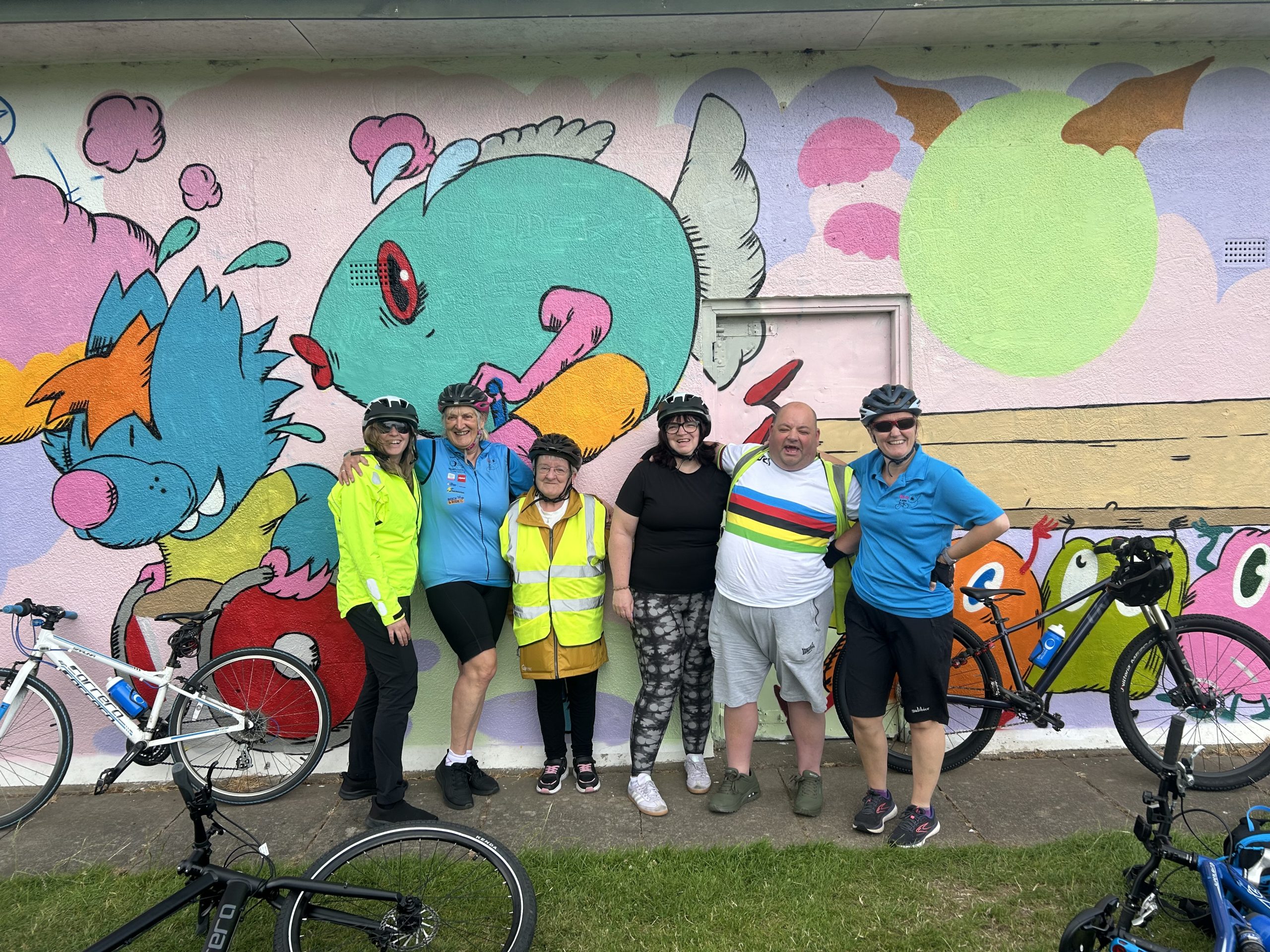The project began with trustee Diane Maciver, an Advanced Nurse Practitioner, who had personally benefited from cycling and began to consider how it could support patients whose inactivity was affecting the management of their diabetes. She discussed the idea with fellow trustee Elizabeth Duncan, who was thinking about similar ways to help people without access to a bike.
As Breeze Champions, they had seen the power of cycling to build confidence, connection, and improved wellbeing among women. Yet they recognised that Breeze rides were not accessible to many people facing poor health, low fitness, or limited mobility, especially those without a bike. As conversations developed, more women they knew through cycling joined them, united by a shared desire to offer a more supportive pathway into cycling for those who would benefit most. Their vision was simple: to give anyone living with long-term physical or mental health challenges the opportunity to cycle and experience the transformative benefits they had personally experienced and witnessed.
The project got off the ground with support from Rock Up & Ride, Scottish Cycling’s initiative aimed at changing lives through cycling, which provided bikes and equipment for participants. A small grant from Alpkit offered further support. With three trustees working in the NHS, word spread quickly among colleagues and departments, helping to promote the new service and reach potential participants.
As they prepared to welcome their first riders, the team realised that 1:1 and 2:1 support would be far more effective than group rides. Many people referred to the charity were dealing with anxiety, reduced confidence, or isolation, so the team prioritised making the first steps feel easy and welcoming. Initial meetings focused on building trust and reassurance before any cycling took place.
Five female trustees lead Get on a Bike: Diane Maciver, Elizabeth Duncan, Sheila Scott, Fiona Howie, and Susan Leonard; an uncommon leadership model within cycling. As a registered charity receiving National Lottery funding, there has been substantial governance and administrative work involved, but the trustees’ diverse skills and experience have ensured a strong and effective foundation.
The work is delivered by 12 volunteer ride leaders, including all five trustees, who share their time, knowledge, and encouragement with participants. A volunteer mechanic also ensures that the bikes remain in excellent working order. People can self-refer or be referred by health or support professionals such as a GP, psychologist, or wellbeing practitioner. Posters and leaflets have been distributed throughout the community, and Diane often spends her lunch breaks cycling around Elgin delivering materials and speaking with organisations. The team also attends health centres with an information stand to speak directly with patients.
First meetings take place in a local café over tea and coffee. With bikes and equipment stored in the old pavilion in Cooper Park, participants can take a gentle walk to see the set-up, learn what to expect, and, if they feel ready, be fitted for a bike and helmet. Supported by a ride leader, they may even try a short cycle around the park.
Client Stories
Deborah had been living with stress and approached her GP for help. Offered antidepressants, she hoped to avoid medication and asked for counselling. There she heard about Get on a Bike and reached out. She was surprised to find herself “whooping with delight” on her first ride, later describing the experience as “like an anti-depressant on two wheels.”
Charlotte’s first ride was a small loop of the park. Several rides later, she is confidently cycling to a café at the end of the cycle path. Getting started on a bike has sparked major lifestyle changes: she is working with her GP, therapist, and nutritionist, has added swimming to her routine, walks faster, climbs the hill to her home with more ease, and relies less on her walking stick. “This got me started, and has changed everything,” she says.
Alan, aged 82, used to cycle regularly but stopped due to balance issues, limiting his activity to the gym. With Get on a Bike, he is enjoying cycling outdoors again. “I feel safe cycling with two leaders who are so careful when choosing routes for me, and I’m getting steadier each time I go out.”
Graham, who has cerebral palsy, began cycling with the charity early in 2024 and is delighted with the progress he has made. “Get on a Bike has improved my confidence and my mental health.”
This winter, indoor cycling sessions are helping participants build bike-handling skills and confidence while it is too cold and dark to ride outdoors. The team also plans to run open days next year to provide an easy, welcoming way for new participants to learn more about the service.
Community connections have played a key role in the project’s success. The local council has provided storage in the park, the college has offered use of a hall, volunteers are developing a website, and word continues to spread, boosted further by branded kit worn by ride leaders and the public interest it generates.
Further promotion has recently been gained following Diane’s recognition as British Cycling’s Community Champion Volunteer of the Year, as well as Get on a Bike’s success at the Scottish Cycling Awards, where the charity received the Inspiring Participation Award. While Diane’s award reflects her wider contribution to cycling, both achievements highlight the importance and value of Get on a Bike, and the hard work, dedication, and commitment of everyone involved in making it the success it is.
Get on a Bike hopes to continue growing, helping even more people experience the joy, independence, and wellbeing benefits of cycling – because something truly special happens when you get on a bike.
Thank you to Get on a Bike for speaking with us and sharing your story. Got a story to share? Contact our Communications Team at [email protected]

